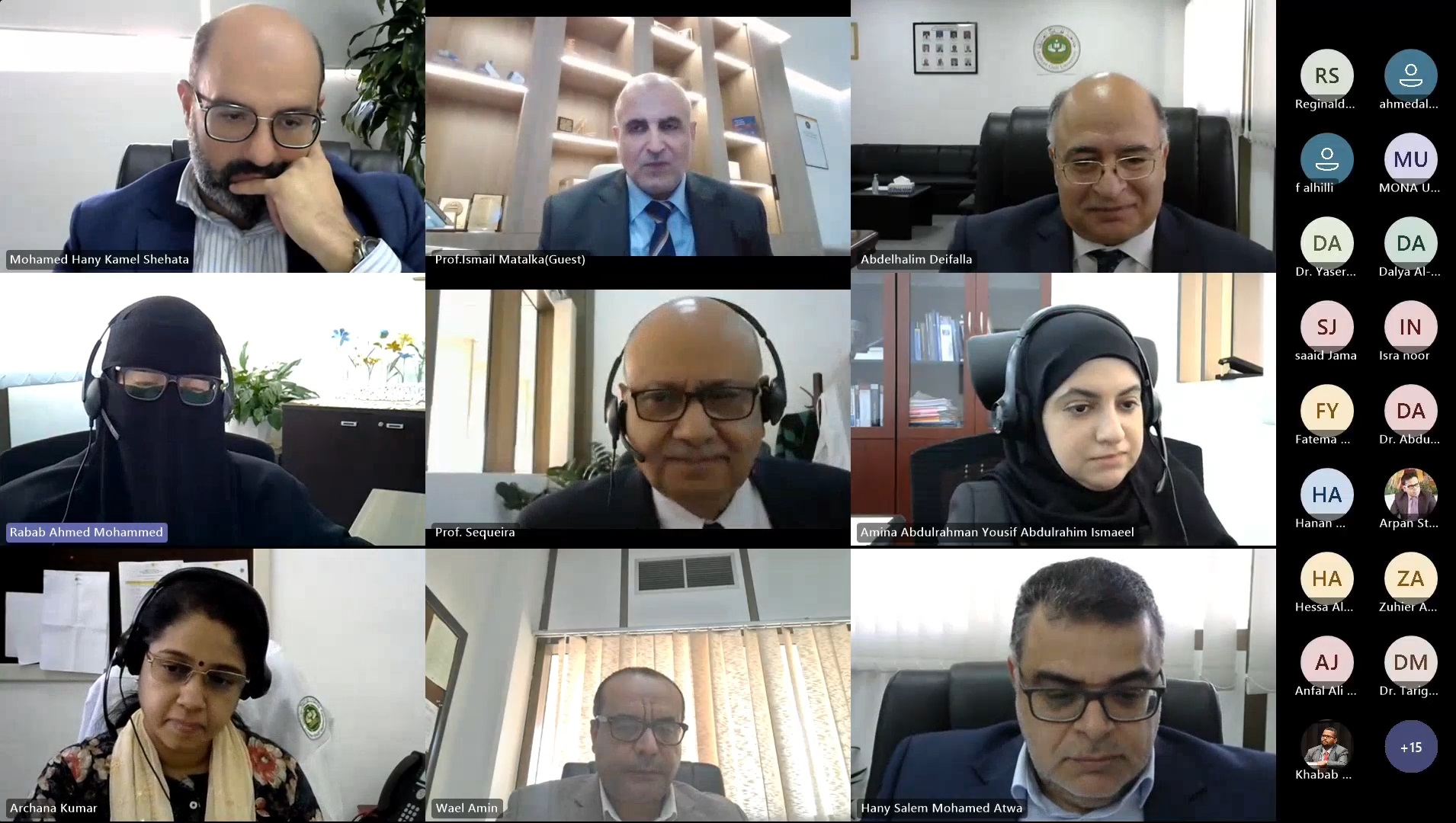
Medical Education Experts Discuss the Importance of Enhancing Quality in Health Professions Education in a Virtual Symposium
Arabian Gulf University
17 Dec, 2024
A virtual symposium organised by the College of Medicine and Health Sciences at Arabian Gulf University (AGU) addressed the issue of enhancing quality in health professions education to achieve compliance to performance. This event was held as part of the World Quality Week 2024 activities, aiming to highlight the significance of quality management and its role in developing medical education and health services, with a focus on transitioning from mere compliance to achieving high performance in line with international standards.
Experts in medical education engaged in discussions about the challenges and opportunities related to moving from compliance to high performance in health professions education, aligning with established international standards.
The symposium featured several experts and academics who emphasised the need to improve quality practices in medical education in order to keep pace with rapid developments in the health sector. They affirmed that quality is not merely about commitment to laws and standards, but is fundamental to achieving effective and sustainable performance in educational and health institutions.
In his opening remarks, Professor Abdelhalim Abdelfattah Salem Deifalla, Dean of College of Medicine and Medical Sciences at AGU, stated, "This symposium represents an important step towards fostering a culture of quality in medical education. the College of Medicine and Health Sciences at AGU is committed to equipping students and faculty with the latest tools and knowledge to enable them to achieve the highest performance levels, thereby enhancing the quality of health services in the region and globally". He added, "We are dedicated to developing an educational system that aligns with international standards and enhances the capacity of health professions to provide high-quality care to communities".
Professor Ismail Matalka, President of Ras Al Khaimah University of Medicine and Health Sciences, participated as a keynote speaker, emphasising the importance of academic accreditation and quality management in medical education. He remarked, "Academic accreditation is a fundamental pillar that ensures the sustainability and quality of medical education and should be a primary focus in developing educational and training curricula. By adopting a culture of quality and effective management, we can improve medical education outcomes and ensure that society is provided with exceptional healthcare professionals capable of addressing current health challenges".
Additionally, Professor Reginald Sequeira offered insights on the accreditation of medical programmes, while Professor Mohamed Hany Shehata discussed the impact of technology on enhancing the quality of medical education.
Associate Professor and Chair of the Quality Assurance Committee, Dr Rabab Ahmed, presented on the role of technology in improving the quality of education for graduate students. Quality specialist, Mr Khabab El Hag, outlined the transition from compliance to high performance in health professions education, highlighting the importance of fostering a culture of quality among students and faculty members.
The symposium concluded with a review of AGU’s achievements in meeting international accreditation standards such as ISO, ACCM, and WONCA, enhancing its status as a leading institution in medical education and healthcare at Gulf, regional, and international levels.
Participants also provided several recommendations to bolster the role of quality in the evolution of medical education, including enhancing the efficiency and professionalism of future physicians, regularly updating medical curricula to align with the latest developments in the field, focusing on interactive learning, integrating modern technology into medical education, and promoting a culture of comprehensive and continuous assessment.
